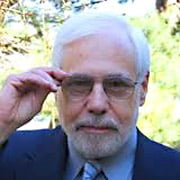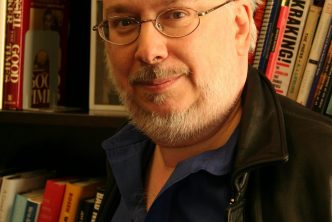David Thorburn is among the five professors who have been named as MacVicar Fellows for 2002. (read the article):
The program, now in its 11th year, is designed to create an elite group of MIT scholars committed to excellence in teaching and innovation in education–causes championed by the late Dean of Undergraduate Education and Professor of Physics Margaret L.A. MacVicar, whom the program honors. Dean MacVicar died in 1991.
[…]
Thorburn received an A.B. from Princeton and an M.A. and Ph.D. from Stanford and taught in the English Department at Yale for 10 years before joining the MIT literature faculty in 1976. He has held visiting appointments at the University of Illinois, the University of California at Santa Barbara, George Washington University and the Bread Loaf School of English.
Thorburn was the founder and for 12 years the director of MIT’s Film and Media Studies program, the precursor to today’s Comparative Media Studies (CMS) program. He serves on the governing board of CMS and is a former director of the Cultural Studies Project. He is currently director of the MIT Communications Forum.
His course on American television was one of the first in the country to examine the medium in a humanistic context. He has lectured widely in the United States and abroad, with special emphasis on media culture and on the teaching of literature. In 1996 he was named Distinguished Lecturer to the National Literature Project of the National Council of Teachers of English.
He is author of “Conrad’s Romanticism” and many essays and reviews on literary, cultural and media topics. He has edited collections of essays on romanticism and on John Updike, as well as a widely used anthology of fiction titled “Initiation.” He is editor in chief of the new MIT Press book series, “Media in Transition.”
“I’m deeply grateful for this recognition, but I’m conscious as well of how arbitrary it is for me to be singled out from a group of teachers as gifted and committed as my colleagues in the literature faculty,” he said. “They–we are truly a special group. Better than any faculty I know of in this country, they keep alive the ideal of the teacher-scholar. I accept this award on behalf of my comrades in the Literature Section of MIT.”
He then read the names of the other 16 professors in the group: James Buzard, James Cain, Peter Donaldson, Howard Eiland, Mary Fuller, Diana Henderson, John Hildebidle, Noel Jackson, Henry Jenkins, Wyn Kelley, Alvin Kibel, Christina Klein, Ruth Perry, Shankar Raman, Stephen Tapscott and William Uricchio.
A colleague said of Thorburn: “He has devised, instituted and overseen lasting and influential curricular change in literature and in media studies at MIT, change that has become the basis for a rich intellectual community of teachers and students and has led to the successful launch of MIT’s first graduate program centered in the humanities sections, the Comparative Media Studies Program.”
A student told the MacVicar Nominating Committee: “As undergraduates, we all know that MIT is the best place for us to get that top-notch science education that we’ve dreamt about. However, there’s also this suspicion that we’re giving up something to come here, that we’ll only get a second-rate education in the humanities. David Thorburn is one of the main reasons why this is simply not the case.”





